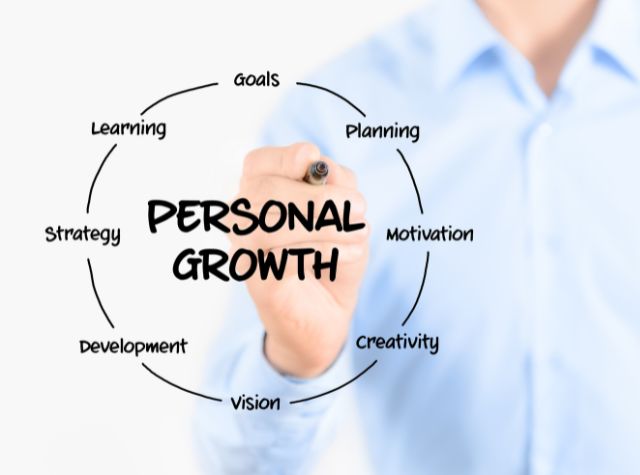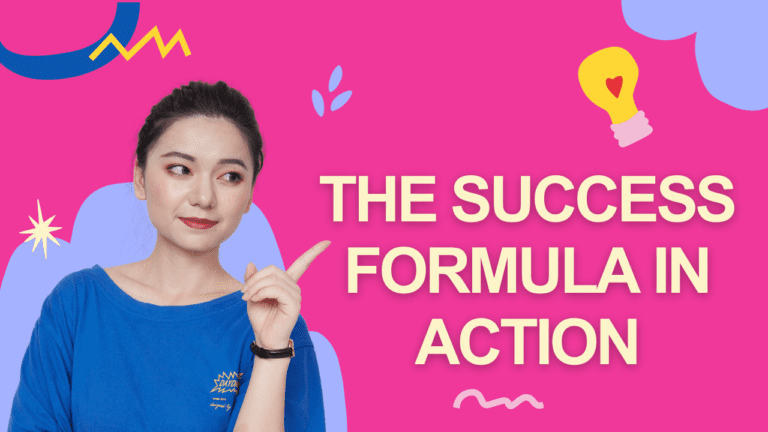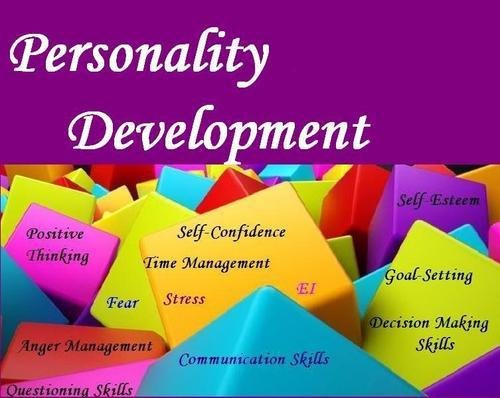Introduction
As we live in an increasingly competitive environment, communication, personality, and interview skills are critical to differentiate yourself and create a successful pathway in business today. Employers are looking for candidates who can communicate their thoughts in clear language, have a strong mutual interest and understanding of context, behave with confidence, and handle the pressures of an interview and the scrutiny everyone goes through before getting hired, master english and personality skills for interview.
Good English skills allow you to express your ideas when communicating at meetings, presenting, in emails, and in any one-to-one professional conversations. A strong personality depicts traits of being confident, flexible, and able to lead. The vast majority of jobs and professions currently represent skills and behaviors that align with these types of personalities. Master English and personality skills for interview.

Through this guide, I intend to help you develop your English, thereby sharpening your personal communication skills, work on your winning personality, and prepare yourself for interviews, which most people find difficult not only because they lack preparation but also because they lack the ability to engage in the interview while not worrying about any distracting factors. We will observe practical ideas to improve your English, such as habits applied every day, speaking practice, and ways to build knowledge acquisitions for vocabulary application. I will allow you to develop your personality for a lot of this; however, I will help with posture, done by the tone of your voice, self-awareness, and maintaining either a positive or assertive personality.
1. The Role of English Communication in Success
In this competitive landscape, proficiency in English is critical to someone’s career prospects, especially in professional settings. English language proficiency is the basis for clear, competent communication, which ultimately decides a person’s level of success in a professional setting. If you have a level of fluency in English, you fundamentally have a greater foundation to develop your poise and confidence during presentations, meetings, interviews, or group projects with colleagues in far-flung locales across the globe.
Many people have significant challenges speaking English out loud due to simple grammar mistakes, their limited vocabulary, or lack of confidence to express their ideas fluently in English. One common mistake many individuals make in English is to use too many filler words such as “um,” “like,” or “you know,” which, taken together, dilute the idea or message a speaker is attempting to deliver
Furthermore, it is an added benefit to do some reading in an English-language newspaper or blog, or one short article daily can help you learn an average of between 10 and 40 vocabulary words in total a month, and you will also learn new tones and pronunciation, or in essence learn another language within the English language by providing meaning to the word or text without the costs of formal coaching. To practice and gain fluency, confidence, and understanding of face-to-face conversations, you can watch interviews, TED Talks, podcasts, or any English tutorials you like and practice repeating some important sentences and build your fluency and real-world conversational English conversation with potentially another person or group of people. So many uses of mobile technology avail an individual to require direct practice for improvement in English.
2. Building a Winning Personality
Workplace culture, interpersonal conflicts, and job descriptions cannot influence a strong personality, but work ethic, productivity, and positive interactions with any person focusing on a concerto or achieving professional collaborative goals that come naturally to them can. Work ethic is job-dependent; read job descriptions carefully!
A position requiring a strong personality will have jobs where, regardless of your team members, you will work harder and be an example of never quitting. Reach out and balance your level of positive energy with those who are negative or lazy and are highly visible with lots of power and privilege. A strong personality is generating and developing ideas that enhance the establishment of new and better conditions to work.
Social intelligence is made easier when you accept that each person on the team has a purpose and each person in an organization has value. Value is demonstrated by emotional and social credentials of the highest level. Is it ethical to ignore positive attributes that contributed to a project or service when the team member with a winning personality was the one who was miserable with the project or service?
Particularly for people who do not ordain strong personalities to show their worth.
People with private political issues deliberately engineer an obstacle that challenges their authority and workplace expectations, eliminating positive results. Learning from past mistakes, new strong personalities will become transformational leaders. It would be ironic if all the muscular good attributes of a job description were wasted on a non-filer with an unadulterated personality. Being a quantifiably socially and emotionally aware person is aspirational.
3. Interview Mastery: Turning Preparation into Performance
The secret to interviewing success lies in preparation—do your research on the company, familiarize yourself with the job, and prepare your answers for these questions to give you the confidence to construct answers that will flow from your mouth and be well-organized, vocalized with clarity, and flow for delivery when the pressures of the interview begin to take effect. You should prepare for questions like “Tell me about yourself.” “What are your strengths and weaknesses?” and “Why should we hire you?” Practice your answers out loud in front of a mirror or with a friend if you want to practice these questions to get the fluency, clarity, and delivery you need when the pressure of the interview occurs. You can structure your answers by using simple techniques like the STAR method—Situation, Task, Action, and Result—to help you organize your thoughts and keep answers succinct.
In addition to using words, non-verbal clues like body language, the importance of eye contact, and gestures also influence first impressions. While seated, sit up straight, maintain eye contact, and offer a confident yet polite smile. This shows professionalism and maintains a calm presence. Dress appropriately for the interview. Formal dress and grooming show respect for the opportunity and will also help you to feel prepared and serious about the role. Maintain good grooming and use subtle colors. Your visual presentation is the first language of your interviewer before you open your mouth. Walk into the room with confidence, greet your interviewer politely, and thank them for the opportunity. This immediately puts an atmosphere of respect and professionalism in the interview. When responding to difficult or unexpected questions, take a moment, breathe, and respond with seriousness.
4. The Success Formula in Action
Real success stories often begin with people who lacked confidence but transformed completely through English fluency training and personality development workshops. One student, who tended to freeze and fail in interviews due to poor communication, practiced spoken English and developed habits for effective body language. After practicing spoken English and developing habits for effective body language, they had the confidence to go into the interview.
They considered what their posture was saying and practiced mock interviews where they either hired or did not hire. And every time they enrolled in a new class, they utilized the mock interview experience to ensure they were slowly getting better at communicating verbally fluently and expressing their ideas. Fluent English speaking and confident eye contact with practical demonstration of ideas in interviews leave a lasting impression on interviewers and potential employers.

With a winning combination of English fluency, a confident personality, and proper interview preparation, the students are polished professionals and continuous change agents from day one. There is no doubt that the success formula is not found in the talents of some, but in the habits of many, constructed through daily practice speaking, personal understanding through reflection, and experiences that put the student into real-life challenges and situations where they will succeed through their own accountability, responsibility, and experience gained.
Communication teaches students to develop clarity, personality helps the student to develop presence, and employing them together with interview mastery shows that they are ready—and together this creates a powerful identity . Similarly, many of the individuals I have worked with have expressed that incorporating English journaling, reading out loud, and friends into their regular practices all helped to sharpen their fluency but also, more importantly, their clarity of thought and choice of words.
5. English Fluency: Unlocking Global Opportunities
English fluency is no longer a ‘nice to have’; it’s a must if you want to communicate globally, build your career, and succeed in today’s professions.
Being fluent in English means you can easily work with clients in global markets, attend meetings or conferences, or grow in global companies. Most companies now, or at least very soon, will want to hire employees who can write, speak, and otherwise communicate ideas fluently in English when they are communicating about work, including themselves as employees. When we talk about fluency in English, we are now going much deeper than simply learning the grammar rules of a language. In addition, we are talking about improving your own self-confidence, your presentation skills, and easing how you communicate with clients, management, and colleagues from across the world. The simple fact is that English smooths borders, cultures, and geographies to help you express your ideas and to understand the many opinions that come with the diverse views from across the world and across the many functions of business. Speaking fluent English will allow you more opportunities to study abroad, be eligible for scholarships, and other international exchange, internship, or experience opportunities.
Interviews, discussions with clients, or group discussions will be much easier for you, and you may impact. the conversation if you are comfortable speaking English clearly and confidently as your language. Employers will often look to your ability to communicate professionally in English as a key indicator . What you will be like working for them in terms of how you communicate outside the organization with clients . Fluent English speakers will be entrusted much more with leadership, presenting, and managing clients . Their communication ability in spoken and written English is polished. Learning online is easier too when using English, as being fluent in English.
6. Personality Development: Your Invisible Resume this one
Your personality is an invisible resume that speaks loudly about your confidence, professionalism, and leadership ability in any environment. In today’s competitive job market, a strong personality can sometimes surpass technical requirements and be the deciding factor. Employers are looking for more than just people who can process knowledge; they want people who feel comfortable to be around, who are confident, and who are adaptable to changing environments. Having a developed personality allows you to express your thoughts in a followable pattern, remain calm under stress, and build rapport with coworkers and clients alike. Your personality is evident when you listen, speak, act, dress, and manage yourself with others, whether you are in an everyday social interaction or during a high-stakes professional encounter. Personality development will first require self-awareness by understanding your strengths, weaknesses, feelings, and how your actions affect others in personal and professional contexts.
You can build your confidence and emotional equilibrium through mindful daily habits. Positive affirmations, reading personal development literature, practicing mindfulness, and even wearing your favorite clothing are all habits that can help develop your personality. Other habits that can develop and maintain your personality include being punctual, polite, organized, and giving thanks. Collectively, they are small but powerful factors that can shape what a functional, likable, and respected personality looks like. Remember, if you practice your communication skills, non-verbal communication, and self-presentation habits, you will have a much better chance for people to remember you and the quality of your personality!
7. Interview Mastery: More Than Just Answering Questions
Interviewing well requires more than just offering the right answers; it is about demonstrating confidence, clarity, and the ability to connect positively with the interviewer. An interview is your opportunity to prove to the potential employer how your personality, communication style, and mindset fit well with the company culture and its goals. Use an interview to remember what employers will look for, which is how you present yourself, how you respond under pressure, and how you communicate your thoughts in a genuine, professional manner and with the emotional intelligence to understand the direction of the interview. You need to have a solid understanding of the job description and be able to relate your experience and accomplishments back to what the job description actually calls for.
Being an effective interviewee is all about being able to actively listen to the interviewer, maintaining eye contact throughout, and using open body language—meaning your body is facing the interviewer, you are not crossing your arms in your body language, and you are smiling. All of these non-verbal aspects are essential to your engagement during the interview process and must be employed to demonstrate your respect for the interviewer, your level of engagement throughout the interview, and your strong presence. Your first impression about how you present yourself in the first few moments of an interview is determined by your ability to be on time, how you appear (e.g., grooming, clothing) when you first meet the interviewer, and how you greet them. All of these factors plant seeds, so to speak, of your capacity to drive the interview in the right direction even before you say a word.
8. Real-Life Applications of the Success Formula for personality development
The true value of learning English, personality, and interview skills is realized when we apply those skills in real situations, which can determine your future. The combination of these three skills results in one defining thing: whether landing that dream job or leading a team and developing employees, the aforementioned would lay a solid foundation for either career growth or career confidence. Take a student who struggled with English prior to tutoring with me who now manages international clients and presents in meetings confidently after structured practice. In another example, think of a shy/timid graduate.
After working on some personality traits like leadership and empathy, he eventually became a team supervisor everyone respected. In a final example, think of someone who consistently failed interviews only to eventually succeed following 50-plus interviews after they learned to strategically align their responses to the company’s goals.

Using the success formula on a daily basis brings real-world results—confidence increases, communication improves, and opportunities become clearer and more plentiful. For example, a stay-at-home mom applied the formula to improve her English and personality and is now running her own. Successful business with her own line of products and paving the way for others who want to be entrepreneurs. A young professional applied the formula by learning to speak clearly, listen intently, and dress assertively. Now he is leading discussions and giving presentations in boardrooms and negotiating deals. University students who are using this formula participate in debates, lead group projects. Obtain internships while they effortlessly stand out among hundreds of other applicants. For students who want to study abroad, IELTS and PTE exams are easier to brush up on their skills. When they have strong English backed by a confident personality framework.
Conclusion
Today, success requires more than just knowledge; it requires the ability to communicate clearly, present with confidence, and perform under pressure consistently. The ideal combination of English fluency, a firm personality, and mastery of the interview is the ultimate combination for lifelong career progression. When you can fluently express your ideas, your firm personality creates an impression of is receiving the ideas. Interview success opens the doors of opportunity. This guide has shown you some practical ideas around language and personality to stand out as a future leader in your field of study, profession, or career. With daily practice, intense preparation, and self-awareness, anyone can master this formula and affect their personal and professional pathway meaningfully. The success formula works all of the time in real life (interviews, presentations, meetings, and even casual conversations) through your ability to build trust, clarity, and impactful first impressions.
Whether you are a student, a job seeker, or a working professional. This success formula is suitable for your entire journey of growth. Being communicatively fluent in English helps you speak with clarity, demonstrated personality helps you be present as a leader. Mastering the interview process helps you grab the opportunities. These skills help you build your resume, but they also help you build your reputation, your relationships, and ultimately your readiness for an uncertain future. Remember, daily habits of effort win over instant perfection; each day we have a new chance to reinvent ourselves.
